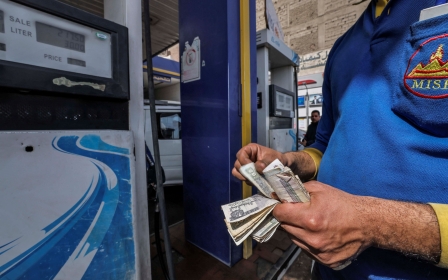Egypt to withdraw from UN grain treaty to reduce dollar dependency

Egypt has given notice that it will withdraw in June from a UN grain treaty after deeming it provided "no added value" to the import-dependent country.
Egypt is one of the world's top wheat importers and the reports on Friday that it would be leaving the 1995 Grains Trade Convention (GTC), which promotes market transparency to further trade cooperation, was greeted with dismay by other signatories.
"This came without prior information," Arnaud Petit, executive director of the London-based International Grains Council, which administers the treaty, told Reuters.
'Cairo wants to reduce dependence on the dollar by approaching countries with which it can deal with their local currencies, including Russia and China'
– Sherif Fyad, agricultural economics professor
"Several delegations within the IGC are surprised and sad about the decision."
The decision was made, according to Reuters, after an assessment by Egypt's ministries of supply and trade concluded the country's membership in the council delivered "no added value".
Stay informed with MEE's newsletters
Sign up to get the latest alerts, insights and analysis, starting with Turkey Unpacked
Two sources familiar with the matter told Reuters that Egypt owed the IGC membership fees.
Middle East Eye has reached out to the Ministry of Supply for comment but has not received a response by the time of publication.
Egypt imports most of its food needs, a dependency which has exacerbated the country's economic crisis in the midst of the Russia-Ukraine war.
Egypt relied on Russia and Ukraine for around 80 percent of its wheat imports.
The prices of food and basic commodities, mostly imported, have more than doubled since the Egyptian pound was devalued at the beginning of this year.
This came after the International Monetary Fund approved a bailout for Cairo in December, the third deal since President Abdel Fattah el-Sisi came to power in a 2013 military coup.
The value of the Egyptian pound against the US dollar dropped from seven in 2013 to just above 30 at the time of publication.
A shift to a flexible exchange rate regime is among the main conditions of the international lender to reduce inflation and consolidate the country's spiralling debts.
Abdel Ghaffar al-Salamoni, deputy head of the grains section at the Federation of Egyptian Industries, said that Egypt's withdrawal from the GTC comes in the wake of studies by the ministry of supply, which showed that the convention "does not serve Egypt's best economic interests".
"Egypt strives to reduce dependence on the US dollar as a currency in international trade," he said. "It also wants to deal with major grains trading partners, such as Russia and India, directly."
Salamoni added that Egypt wants to pay for Russian grain imports in the Russian currency and to exchange fertilisers for Indian grain shipments.
He added that the government needs to get rid of the annual fees charged by the IGC.
"Egypt is taking this decision at the right time. It knows that Russia will not allow any grain shipments to come out of Ukrainian ports. Egypt will get its grain imports from suppliers without dependence on the dollar," he told MEE.
Sherif Fyad, an agricultural economics professor at the Desert Research Center, an affiliate of the Ministry of Agriculture, also argued that the withdrawal "will serve Egypt's best interests.
"Cairo wants to reduce dependence on the dollar by approaching countries with which it can deal with their local currencies, including Russia and China," he said.
"Other members of the convention are just afraid that Egypt's withdrawal will cause other countries to follow suit," he told MEE.
Middle East Eye delivers independent and unrivalled coverage and analysis of the Middle East, North Africa and beyond. To learn more about republishing this content and the associated fees, please fill out this form. More about MEE can be found here.





